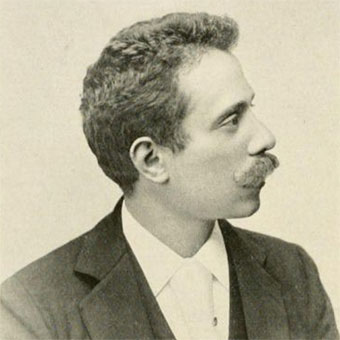
Robert Kahn
One of his generation’s most important composers of late romantic chamber music * came from a respected Jewish family of merchants and bankers, which nurtured his musical talent from a young age * first publications of chamber music compositions in adolescence * composition studies at the Berliner Hochschule in the early 1880s * made Joseph Joachim’s acquaintance, to whom he dedicated his Violin sonata op. 5 and his String quartet op. 8 * in 1887, formative period of residence in Vienna and daily meetings with Johannes Brahms, who had a lasting effect on Kahn’s compositional style * gained the friendship of the writers Christian Morgenstern and Gerhart Hauptmann, whose works form the basis for several of Kahn’s songs * Composition of numerous vocal works such as 7 Gesänge op. 49 and 9 Gedichte von Johann Wolfgang von Goethe op. 55 * Kahn emigrated to Britain after the events in late 1938 and stayed there until his death * despite the avant-garde movement of his generation, the traditional Kahn composed in a classic-romantical style throughout his life, following the "great masters" Bach, Beethoven, Brahms, and Schumann * his oeuvre primarily consists of songs, choir works, piano music, and piano chamber music, and only contains two works for large orchestra
Works by Robert Kahn include:
Sturmlied op.53 (Storm Song) (1910) for 4-part mixed choir, orchestra and organ
Cello Sonata No.2 in D minor op.56 (1911)
Serenade in F minor op.73 (1923) for oboe, horn and piano
"I never composed with the intention to exert an effect on others, but always according to my mood. I did not want to write in neither Strauss’ nor Schoenberg’s nor Hindemith’s style, but in my very own. It was the will and the need to communicate something that inspired me to work." — Robert Kahn
